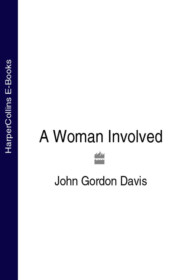По всем вопросам обращайтесь на: info@litportal.ru
(©) 2003-2024.
✖
Roots of Outrage
Автор
Год написания книги
2018
Настройки чтения
Размер шрифта
Высота строк
Поля
Chapter 94 (#litres_trial_promo)
Part XIV (#litres_trial_promo)
Chapter 95 (#litres_trial_promo)
Chapter 96 (#litres_trial_promo)
Chapter 97 (#litres_trial_promo)
Chapter 98 (#litres_trial_promo)
Chapter 99 (#litres_trial_promo)
Chapter 100 (#litres_trial_promo)
Part XV
Chapter 101 (#litres_trial_promo)
Chapter 102 (#litres_trial_promo)
Chapter 103 (#litres_trial_promo)
Chapter 104 (#litres_trial_promo)
Chapter 105 (#litres_trial_promo)
Chapter 106 (#litres_trial_promo)
Part XVI (#litres_trial_promo)
Chapter 107 (#litres_trial_promo)
Chapter 108 (#litres_trial_promo)
Chapter 109 (#litres_trial_promo)
Chapter 110 (#litres_trial_promo)
Chapter 111 (#litres_trial_promo)
Chapter 112 (#litres_trial_promo)
Part XVII (#litres_trial_promo)
Chapter 113 (#litres_trial_promo)
Chapter 114 (#litres_trial_promo)
Part XVIII (#litres_trial_promo)
Chapter 115 (#litres_trial_promo)
Chapter 116 (#litres_trial_promo)
Chapter 117 (#litres_trial_promo)
Chapter 118 (#litres_trial_promo)
Keep Reading (#litres_trial_promo)
Acknowledgments (#litres_trial_promo)
About the Author (#litres_trial_promo)
Also by the Author (#litres_trial_promo)
About the Publisher (#litres_trial_promo)
MAPS (#ulink_1fa3a6b3-5d2e-5994-b26f-ff259578404b)
Southern Africa at the Time of the Great Trek
South Africa at the time of the Boer War, 1899
(Modern names of provinces/countries are underlined)
PROLOGUE (#ulink_cf9bbeca-e12d-59ca-8fd2-9124d8ec2a19)
The gallows stood ready, silhouetted. These hard, rolling hills of the eastern frontier of the Cape Colony were soaked in the blood of the Kaffir Wars, and today more blood was to be spilt at the execution of the five ringleader Boers of the Slagter’s Nek rebellion – at the very place where they had taken the oath to drive the British into the sea.
The hangman, who had journeyed up from the coast, had brought only enough rope to hang one man at a time, so the magistrate had acquired more, but unbeknownst to everybody it was rotten. Now five nooses dangled, and gathered around were the relatives of the condemned, the other rebels who had been sentenced to imprisonment and the Dutch farmers from miles around who had been ordered to attend to witness how seriously the British took rebellion. And now, from the direction of the military post, came the beat of drums, and the wagon bearing the condemned.
The drummers slow-marched. Slowly they advanced up the rise to the gallows. The condemned men climbed down off the wagon and mounted the scaffold. One after the other, the hangman tied their ankles, slipped the nooses over their necks. When all was ready, the Reverend Harold led the assembly in prayer. The magistrate ordered the drums to roll: softly, then louder and louder. The plank was kicked away, the men plunged into their death-fall, there came the dreadful wrench on their necks, and four of the ropes snapped.
The condemned men lay writhing in the dust, choking, as pandemonium broke out all around them: the shrieks of joy that the hand of God had intervened, people rushing to the struggling men, wrenching loose the nooses, the priest in the midst of them gabbling his prayers. Then the magistrate bellowed above the uproar: ‘Bring more ropes!
The uproar redoubled, the priest in the forefront – ‘God Himself has intervened!’ The magistrate had to shout at the top of his voice that it was not within his power to grant pardons.
By the time the horseman came galloping back with more ropes order had been restored. The condemned were clustered under the gallows in the arms of their wives and friends, surrounded by a ring of soldiers. While the hangman rigged new nooses the priest led the emotional people in prayer again. Then the condemned men sought permission to sing a hymn. This was granted, and the tearful cadence rose up. Then one of the condemned asked permission to say a few last words, and in a shaking voice he urged his brethren to heed his unhappy fate. They mounted the scaffold again. The magistrate ordered another roll of drums. The platform was kicked away.
This time the ropes held: the men hung, their eyes bulging and their tongues sticking out, excrement dripping down their kicking legs, and a howl of anguish went up from the people.
King Henry the Navigator called it the Cape of Good Hope, for he was sure it was the sea-route to China, but despite its mercantile importance this southern tip of Africa lay unoccupied until, in 1652, the Dutch East India Company established a small revictualling station for its ships there, called Cape Town. The Company had no intention of colonising the interior, but within a hundred and fifty years Dutch farmers had, in defiance of Company edicts, wandered six hundred miles along the rugged coastal hinterland with their cattle, building mud and thatch homesteads, then wandering on after a while. They were called Trekboers, and a new language evolved, a bastard Dutch called Afrikaans.
Theirs was a good life, called the Lekker Lewe, of limitless land, adequate slave labour and security, for they met no Caffres – as black men were then called – the hinterland being empty but for small bands of nomadic Bushmen who were soon driven out. But finally they came to the big river called the Fish, and beyond were many warlike Caffres, the Xhosa, and they were also cattle men.
The Company forbade the Trekboers to cross the Fish River, to have any contact with the Xhosa. But there was always cattle thievery, followed by raids to recover the cattle (and probably a few more besides), and by the time the British occupied the Cape in 1806 to protect her Far Eastern trade against Napoleon there had already been three bloody, full-scale ‘Kaffir’ Wars.











